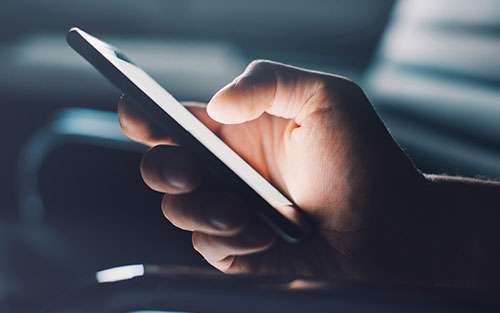
 You may have seen the news about a new app, called BiliScreen, being developed at the University of Washington that may be able to aid in the detection of pancreatic cancer. The premise is that someone can take a photo of themselves (selfie) through a specialized pair of glasses or goggles, and the app will measure bilirubin levels in the whites of their eyes.
You may have seen the news about a new app, called BiliScreen, being developed at the University of Washington that may be able to aid in the detection of pancreatic cancer. The premise is that someone can take a photo of themselves (selfie) through a specialized pair of glasses or goggles, and the app will measure bilirubin levels in the whites of their eyes.
While it’s exciting to see high-tech research taking place in the pancreatic cancer field – and especially efforts toward much-needed early detection – below are some important questions and answers to better understand this particular effort.
What is bilirubin and how does it relate to pancreatic cancer?
Bilirubin is a component of bile, a fluid produced by the liver. Elevated bilirubin can indicate the presence of certain conditions or diseases, including pancreatic cancer.
The state of elevated bilirubin is known as jaundice, which causes a yellowing of the skin and eyes. Jaundice can be a symptom of pancreatic cancer, when the tumor impedes the bile duct connecting the pancreas to the liver.
Are all pancreatic cancer patients jaundiced?
No, not all pancreatic cancer patients experience jaundice. It depends on the size of the tumor and its location within the pancreas and interaction with the bile duct.
Does high bilirubin mean that someone has pancreatic cancer?
Bilirubin levels can become elevated due to multiple conditions, including benign inflammation of the pancreas or liver. Not all people who experience jaundice have tumors in their pancreas.
What are next steps for this app?
In order to gauge the effectiveness of the app’s ability to measure bilirubin, the research team’s results would need to be published in a peer-reviewed journal or presented at a scientific meeting. That way, others can analyze the data and compare it to a more standard method of measuring bilirubin levels, via a blood test.
In general, any potential early detection method would need to undergo rigorous experimentation to determine its accuracy as well as sensitivity and specificity – measures of the test’s ability to avoid false negatives or false positives, respectively.
Can this app detect pancreatic cancer early?
It remains to be seen. Jaundice is not a universal symptom of all pancreatic cancer patients, and jaundice can signify other diseases. There is currently no evidence that very small, early-stage tumors in the pancreas would cause elevation of bilirubin. Becoming a validated early detection test would require years of rigorous forward-looking research.
“Although there are many hurdles to validating the clinical usefulness and practicality of this approach, we are delighted to see advanced technology applied to pancreatic cancer early detection where there is such dire need,” noted Lynn Matrisian, PhD, MBA, chief science officer at the Pancreatic Cancer Action Network.
Check out the early detection research that has been funded by the Pancreatic Cancer Action Network’s world-class Research Grants Program.





